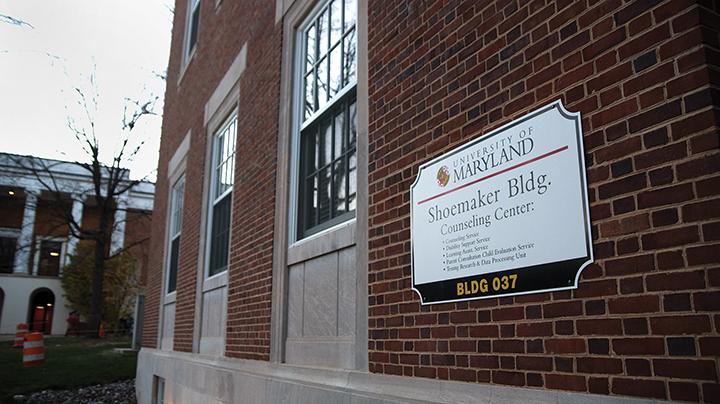The University of Maryland’s Counseling Center has added five new positions to meet a growing student need for counseling resources.
The five new positions include two new psychologists, two triage counselors and an Accessibility and Disability Service specialist, said Sharon Kirkland-Gordon, the center’s director. The center has filled two of the positions and is hiring for the rest, she said.
Initial assessment requests for Counseling Center services increased 16 percent in the last academic year from the previous three-year average.
She described the changes as a “new service-delivery model” for the center, with professionals being put into place to “provide more same-day services for students who walk into the Counseling Center.”
“They can be seen by our triage counselors, who will then assess them and determine what’s the best fit and what are the best services for them in terms of their care and treatment, so they have timely access,” said Kirkland-Gordon. “And I think it’s a model that probably will work.”
[Read more: This student group says counseling comes “30 days too late” at UMD]
The ADS specialist position and one of the new psychologist positions are already filled, Kirkland-Gordon wrote in an email. The center hopes to have triage counselors in place by the end of September, and it’s interviewing candidates for the other psychologist position this week, she added.
With triage counselors available to direct the front-end work to connect students with resources, it would free up time for psychologists to focus on treatment, she said. Other Big Ten institutions — such as Purdue University, Indiana University and Penn State University — have adopted similar models, she added.
“That’s probably a good idea, it definitely makes things quicker,” said Matthew O’Connell, a sophomore mechanical engineering major, adding it would make the process more effective and efficient.
The five new positions follow a wave of mental health activism last academic year. A student group called Scholars Promoting and Revitalizing Care launched a campaign in February called “30 Days Too Late,” referencing the time it can take to get a Counseling Center appointment after the initial intake.
The center announced in March it would hire four full-time psychologists — three newly created full-time psychologist positions and a fourth to fill a vacancy.
[Read more: A UMD student group wants a satellite Counseling Center on North Campus]
Gabriel Aborisade, a junior public health science major who worked as a peer educator for the University Health Center last year, thought the new positions were great given how many students he saw who needed referrals to the center.
“It was really crazy — sometimes it would get really crowded,” he said. “Giving an avenue where people can just easily go in there and just talk to people, it could probably screen out some cases of emergency and non-emergency, and could probably make [people] more easily assisted sometimes.”
The new positions are funded by $100,000 from stadium sales, as well as the reallocation of funding from internal resources, she said.
Students now also have access to a self-help app called WellTrack, which allows them to access mental health resources by creating an account with their university email. The app provides strategies for managing anxiety, depression and stress symptoms, and also has a mood checker, relaxation exercises and quick videos that students can access at any time, Kirkland-Gordon said.
“This is, of course, not a substitute for therapy, but it is something that could be available to all of our students, and I think it’s a pretty cool thing that we’re doing that’s a little different,” she said.
O’Connell found it encouraging that this university is paying more attention to offering more mental health resources.
“Mental health is definitely a really important thing, especially for college students,” O’Connell said. “We’re all stressed.”



